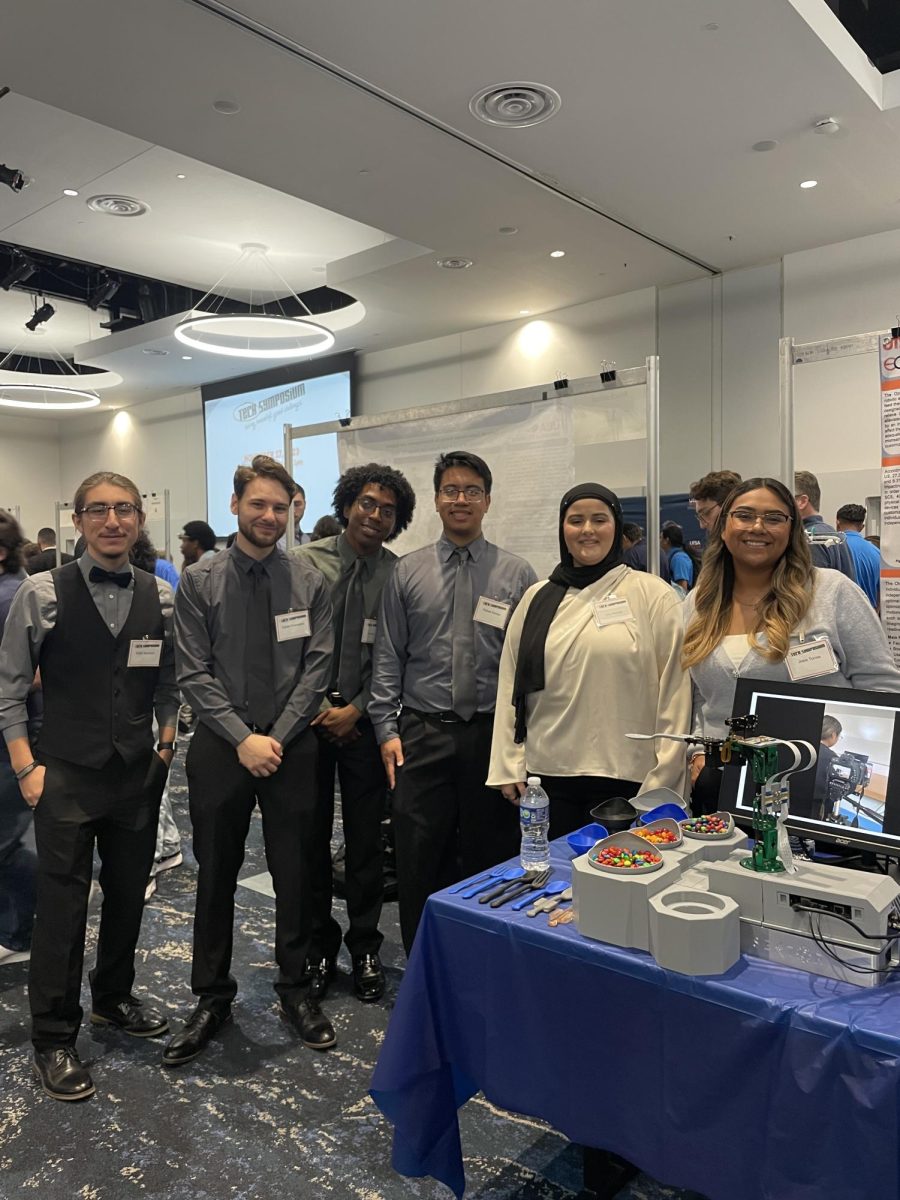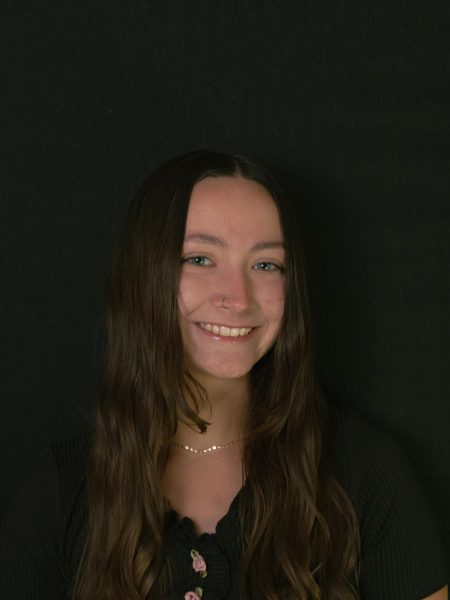The Klesse College of Engineering and Integrated Design hosted their semi-annual Tech Symposium from 8:30 a.m. to 1 p.m. on Nov. 17 in the H-E-B Ballroom. The Tech Symposium allows more than 300 engineering students taking Senior Design I and II to showcase the work they have done in their respective classes over the course of one to two semesters.
Senior Design I comprises engineering students in the first semester of their senior year, while Senior Design II is for graduating seniors in their second semester. Both courses require the students to work in teams to solve a real-world problem. The event aims to promote student ingenuity and foster an environment where students can develop a better understanding of the job market, as each team not only presents for the requirements of their class but also competes for cash prizes.
The presentations were divided into two different sections, with one devoted to Senior Design I and the other to Senior Design II. Students in Senior Design I displayed posters explaining the reach of their project along with its desired future outcome, while Senior Design II students were tasked with a more extensive presentation, with most groups having a working prototype on display.
Among the projects presented was the Optimized Meal Assistance Robot (OMAR), created by the Senior Design II team of Sara Mustafa, Josie Torres, DeMario Harris, Rafael Robles, Elijah Guzman and Caleb Champion.
OMAR is an assistive robotic arm designed to help people with spinal cord injuries or paralysis gain the ability to feed themselves again, rather than being assisted by caregivers.
The inspiration behind OMAR derives from senior computer engineering major Mustafa’s personal experience with her uncle developing paralysis while having cancer, making him unable to feed himself. Mustafa witnessed her uncle lose a sense of independence and how it affected him emotionally, sparking her inspiration to grant others in similar situations the independence her uncle desired before he passed away.
“It was really sad to hear [her] story, and I felt that her uncle could have been a family member like me, and I wanted to take care of someone going through the same situation,” said Mustafa’s group member, Champion.
The project was composed over two semesters, with the first focusing on market analysis and the second being when the team of students crafted the assistive robot. “Through the course of three months, we brought OMAR to life,” said Champion.
The group envisions OMAR eventually reaching the health industry, as they hope for it to be incorporated into hospitals, schools and rehabilitation centers for individuals seeking the ability to feed themselves independently again.
Champion also mentioned that when their team was in the research phase of OMAR, they came across similar devices that aimed to provide the same assistance but that they lacked improvement and were difficult to obtain because of a lack of features or high costs.
“We wanted to take something and make it so much better and also make it [a] more cost-effective tool,” he added.
As of right now, the team is discussing the further development of OMAR and wants to devote a more extensive period to receiving feedback on the device so that they can improve on its technology.
“I feel like the next step for us is to keep doing our research, keep going and see what we can improve on. So, if we ever decide to put this out on the market, we’ll know we’ve done all the effort and all the work that we can do to make [OMAR] the best thing possible,” said Champion.








